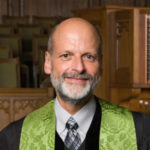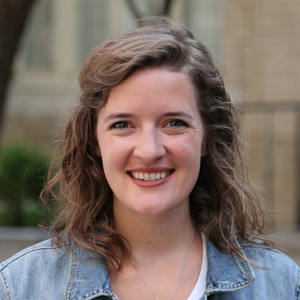 Thank you for sharing this early moment of your day with me, with God, and with the thoughts and words of this reading that I hope you will carry with you throughout the coming day and night.
Thank you for sharing this early moment of your day with me, with God, and with the thoughts and words of this reading that I hope you will carry with you throughout the coming day and night.
Today’s Scripture:
Deuteronomy 11:18-21
Common English Bible
18 Place these words I’m speaking on your heart and in your very being. Tie them on your hand as a sign. They should be on your forehead as a symbol.[a] 19 Teach them to your children, by talking about them when you are sitting around your house and when you are out and about, when you are lying down and when you are getting up. 20 Write them on your house’s doorframes and on your city’s gates. 21 Do all that so your days and your children’s days on the fertile land the Lord swore to give to your ancestors are many—indeed, as many as the number of days that the sky’s been over the earth!
Tim’s Devotional Reflection for Today
Today’s reading for my devotional is the daily Revised Common Lectionary reading from the Hebrew Scriptures. These words from Deuteronomy echo the words from the sixth chapter following the passage called the Shema quoted by Jesus as the greatest commandment: “Love the Lord your God with all your heart, all your being, and all your strength.” (see Deuteronomy 6:4-8, Matthew 22:35-40, Mark 12:28-31, and Luke 10:25-28)
Deuteronomy 6 and today’s reading led to many Jews taking the words literally so that they wear tefillin or phylacteries bound on their forehead and arm. Tefillin are small black leather boxes containing scrolls of parchment inscribed with verses from the Torah. Observant adult Jews wear them during weekday morning prayers. In Orthodox communities, they are worn solely by men, while in Reform and Conservative congregations, both men and women may wear them.
The one on the arm is placed on the upper arm, and the strap wrapped around the arm, hand and fingers. The one on the head is placed above the forehead. They are intended to fulfill quite literally the instructions to tie the words of the Torah “on your hand as a sign” and “on your forehead as a symbol.” Many Jews interpret these verses metaphorically and don’t wear tefillin.
The commandment to “write them on your house’s doorframes” led to the tradition of affixing a mezuzah to the door posts of homes. A mezuzah is a piece of parchment in a decorative case inscribed with the Hebrew verses from Deuteronmy 6 and Deuteronomy 11 (6:4–9 and 11:13–21).
It is a beautiful symbol of the importance of continually paying attention to the importance of loving God and neighbor. It is a reminder that we are to be life-long learners who are always thinking about how to be who God calls us to be. The idea is that we grow throughout our lives. We grow in knowledge, we grow in understanding, we grow in wisdom, we grow in love and we grow in grace.
The passage in Deuteronomy goes on to give instructions about keeping that faith vital from generation to generation — through the ages: “Place these words I’m speaking on your heart and in your very being…Teach them to your children, by talking about them when you are sitting around your house and when you are out and about, when you are lying down and when you are getting up.”
Writer/editor Michael Davis of the Baltimore Jewish Times taught religious education at his Reform synagogue on Sundays and witnessed with sadness the level of indifference religious education takes in the lives of his students and their parents. Contrasting the intensive, rigorous scrutiny and concern these parents direct towards their children’s secular education, Davis observed in an article years ago that “… many are seemingly incapable of caring about what happens on Sunday. They roll up to the temple, drop off their kids and expect that, when they pick them up two and a half hours later, they’ll have been transformed into Jews. I call this ‘Dry Clean Judaism.’” Davis went on to remind those parents and all his readers that religious life cannot be confined to a few hours every weekend. “Judaism,” he concluded, “is a way of life, a 24 hour, seven-day-a-week blueprint to approach and respond to life.” (Michael Davis, “Dry Clean Judaism,” Baltimore Jewish Times, 5 November 1993, 18)
THAT is how we practice these words from Deuteronomy. We make our learning and our teaching a part of who we are, how we relate, what we say to our children and to our children’s children. And we do that 24-7.
There is a lot of theology woven into hymns. To enhance today’s reading, I recommend listening to “O Master, Let Me Walk with Thee”. I hope you will take a few moments to let the words of this message and the emotion that always connects us to music connect with your soul.
O Master, let me walk with Thee
In lowly paths of service free
Tell me Thy secret, help me hear
The strain of toil, the fret of care
Teach me Thy patience, still with Thee
In closer, dearer company
In work that keeps faith sweet and strong
In truth that triumphs over wrong
O Master let me walk with Thee
In closer, dearer company
O Master let me walk with Thee
Let me walk with Thee
In hope that sends a shining ray
Far down the future’s broadening way
In peace that only Thou canst give
With Thee, O Master, let me live
I am so grateful for you, for our church, and for the Love that will see us all through this very difficult time. Please stay safe and well and we’ll be together again in spirit tomorrow morning!
Grace and Peace,
![]()
Dr. Tim Bruster
Senior Pastor

